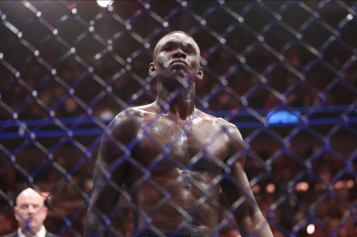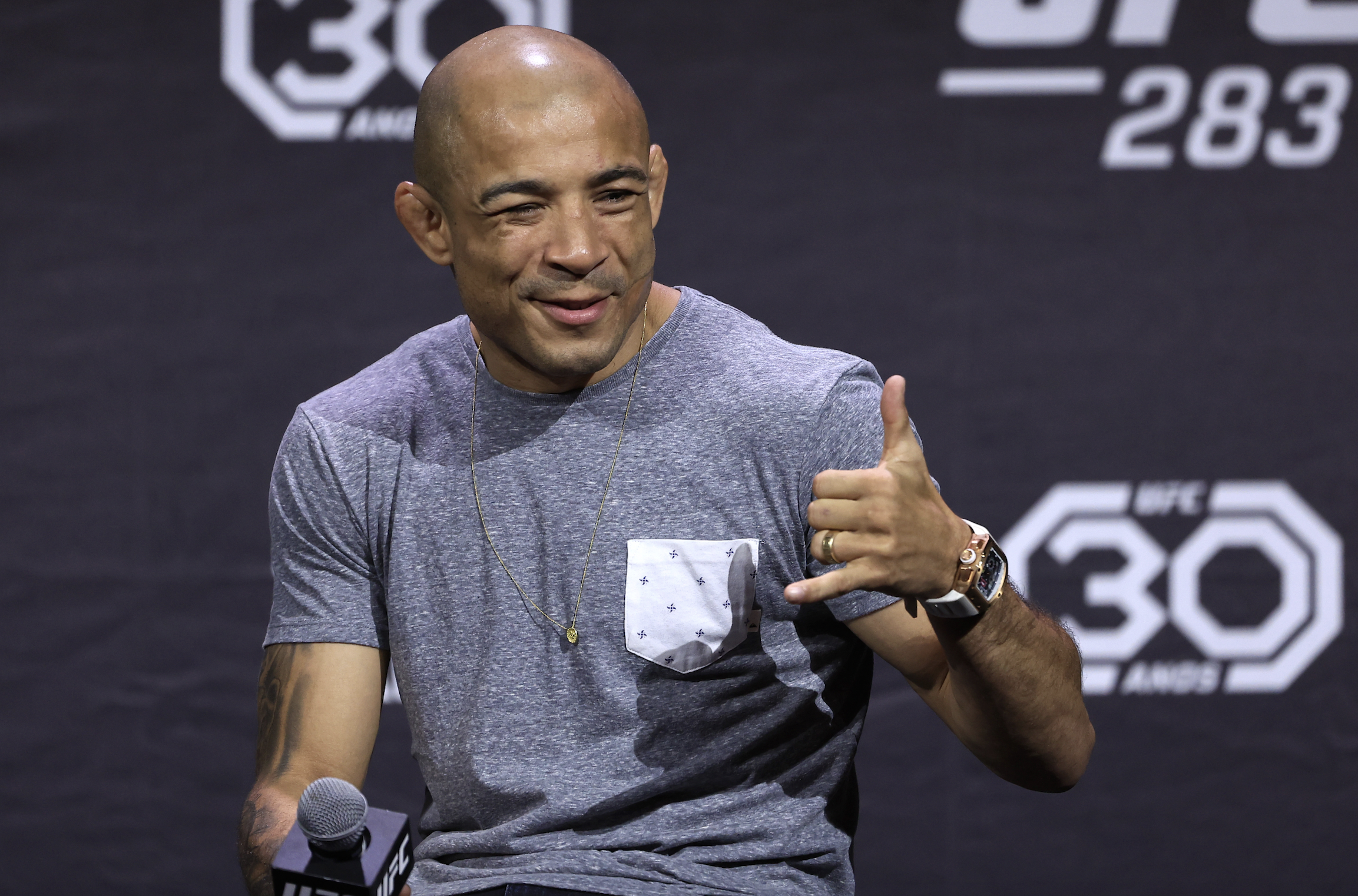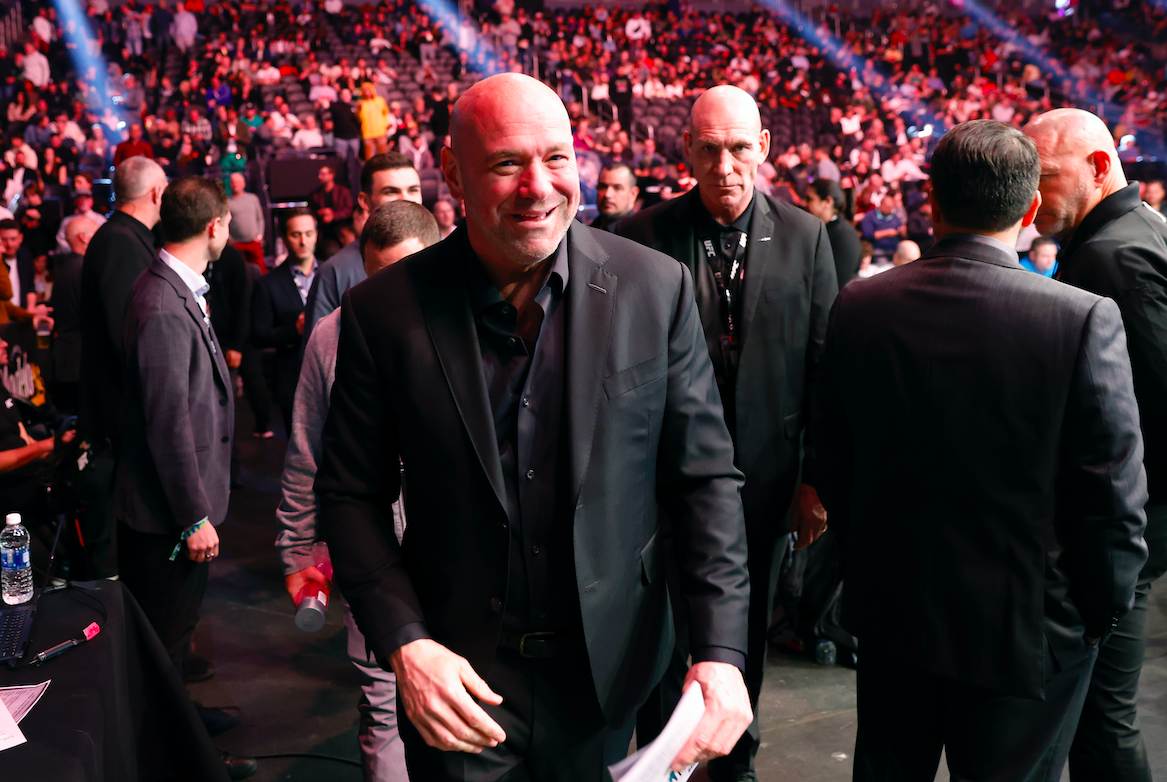Ron Foster is a studious man that looks at the sport of MMA the way a physician does the body. The devil is always in the details and when matching two combatants for legally sanctioned carnage in a cage, one’s attention to detail can be the sink or swim factor for a fighting organization.
Foster is a former soldier who was not only a professional MMA fighter but eventually a matchmaker once he decided to hang up the gloves for the only African American owned major MMA promotion to make it to PPV: SHINE Fight Promotions.
Among his many accolades, he is responsible for the first almost boxing meets MMA hybrid matchup seven years before Mayweather vs. McGregor when he and the team behind SHINE were able to get the North Carolina Boxing Commission to green light a MMA match between former boxing world champion Ricardo Mayorga and former UFC fighter Din Thomas.
Shine Fights: Ricardo Mayorga VS Din Thomas NY Press Conference
On April 15, 2010 at Victor’s Cafe in NYC, Shine Fight Promotions held a press conference to promote their May 15 pay-per-view event, Shine Fights: World’s Collide, with the main event being boxing champion Ricardo Mayorga making his MMA debut against and MMA and UFC veteran Din Thomas.
Foster, who now lives in Germany, discussed with The Shadow League the current state of mixed martial arts in relation to its combatants of color during a time when inclusion is and social justice topics are at an all time high globally.
***
The Shadow League: Talk about your experiences in America as a matchmaker.
Ron Foster: Before being a matchmaker myself, I studied fighters, I studied fights and Brazilian jiu-jitsu and of course striking. I honestly tried to become an MMA encyclopedia because I knew I would need to be twice as good at my job as the next person to be respected.
I felt that I understood the intricacies of the sport as a whole, so I was extremely confident in my abilities to do the job. If it weren’t for Dorian and Devin Price trusting me to do the job I would have never had the chance?
My very first MMA event I was so proud of what we did with no support. I literally cold-called all the major MMA gyms to see what prospects they had available to fight. Shine 1, May 9th, 2009 was held in Columbus, Ohio and headlined by UFC Vet Antonio Mendes vs The Ultimate Fighter 8 veteran fighter Antwain Britt.
Our event was highlighted by global media outlets like HD Net as well as our main event being selected as one of Sherdog.com’s top 10 to see in the month of May. We also had appearances from former UFC champion Robbie Lawler, and fighters like Roan Carnerio, Jorge “Macaco” Patino, Niko Vitale and K-1 legend Ray Sefo was a commentator.
Hits Squad fighter Brian Foster earned a UFC contract after his brutal first round KO over highly touted prospect Kyle Baker and Antwan Britt earned himself a Strikeforce contract after his 8-second first round KO over UFC veteran fighter, Antonio Mendes. SHINE Fights was praised for the quality of the events and I was flooded with emails and phone calls about the next event.
TSL: The tide shifted in the MMA world once they realized SHINE Fight Promotions was owned and operated by four (4) African American men. Why?
RF: In the month leading up to our second SHINE Fights event, SHINE CEO Devin Price was very leery of letting people know that we were a black-owned and operated company, which I didn’t understand at the time. I honestly felt that if we put out a great product, we would continue to grow and be successful. I couldn’t have been more wrong.
There were more and more demands of interviews with SHINE Fights and we were constantly searching for new fighters. We built an extremely good roster. But sure enough, I began getting racially charged emails and messages out of the blue. As we grew, so did the hate and I was completely shocked.
Our second fight was held on September 4th, 2009 in Miami, Florida and was called American Top Team vs. The World. The event was headlined by UFC veteran fighters Roan “Jucao” Carnerio against Jorge ” Macaco” Patino and again we were selected by Sherdog.com as having a Top 10 fight of the month to see. Although we seemed to gain steam in the MMA community the hate mail was getting more and more intense. I couldn’t believe how much negativity we got simply because we were black.
The event was streamed online and was loaded with former UFC, PRIDE, and Strikeforce fighters. The highlight of the event had to be Yves Edwards in the co-main event, he picked up an impressive 2nd round triangle choke win over a very game James “he Unbreakable Heavy Hitter” Warfield for the Fight of the Night. Luiz Buspcape Firmino, Junior Assuncao, Micah Miller, Flavio Alvaro, Herbert Whisper Goodman all picked up great wins as well. The event was also loaded with MMA royalty from all over the world, with many there to support the American Top Team fighters.
TSL: Talk about your experiences in America as a Mixed Martial Arts fighter.
RF: My experience was very unique. When I got involved in the sport back 2001, everything was different. There were no really big paydays, no real sponsorship and a very small underground following.
I was blessed enough to get to see a lot behind the scenes because of the very first MMA Gym that I was a member of, the 808 Fight Factory in Hawaii. At that time, some of the biggest MMA shows in America were held in Hawaii: Super Brawl, Rumble on the Rock and Icon Sport.
Hawaii was the true hotbed of MMA so to be introduced into it at that time was amazing. I had the pleasure of getting beat up day in and day out by UFC and Strikeforce veteran fighters like Ronald Jhun, Niko Vitale, Harris Sarmiento and others who would drop by from time to time. I was able to get a bunch of amateur fights in Hawaii and did extremely well. I was forced to take a couple years off due to Army deployment and a few injuries, so it wasn’t until 2007 when I made my professional debut.
In May, 2007 in Washington D.C, under the tutelage of Fernando Yamasaki, a 6th Degree BJJ Black Belt and brother to UFC referee Mario Yamasaki, I signed my first official bout agreement.
At that time, combat sports were frowned upon while on active duty so the support was very limited from my unit. I had to train when I could as long as it didn’t interfere with anything Army related. I honestly needed much more time to train but I didn’t care. I just wanted to fight. I had a very tough first fight against Bellator vet Kyle Baker, were I lost a controversial match due to a referee who apologized and admitted to me he only had 4 hours of MMA ref training prior to our match.
Foster vs. Baker Fight
undefined
He apologized for costing me the fight.
After this fight was the first time I thought about making some changes in the sport. I met The Ultimate Fighter 5 and UFC veteran fighter Dorian Price and MMA Legend Former UFC Middleweight Murillo Bustamante, who both couldn’t tell me enough how badly I got screwed over in that fight.
Dorian and I exchanged contact info and said that we would come up with something to ensure that fighters were treated more fairly. I remember sitting back and thinking how hard I worked to get there, how much time I took away from spending with my kids all for a measly $500. That organization did treat the fighters very well, I must say, but I wanted to be the person behind the scenes like I saw in Hawaii; those were the ones who were really respected.
I just felt like I was a sheep with no voice; just fight and go away, but I wanted more. In 2008, I had a horrible shoulder injury while competing in the North American Grappling Association (NAGA) which sidelined me for over a year. I worked very hard to get back in shape and wanted to give it another run at MMA.
A good friend of mine and former opponent Jason Nickerson talked me into driving to Chicago to try out for The Ultimate Fighter season 7 and it was the longest 18 hours of my life. I walked through the grappling portion and did very well in the striking portion, but I was not selected to move forward after that.
I met legendary UFC matchmaker Joe Silva for the first time there as well as a ton of UFC fighters. It really motivated me to give it one more shot. My next fight, I picked up another very tough draw and while the fight was very competitive I just didn’t feel that my shoulder was the same and I couldn’t pull the trigger the way I wanted to. I lost the fight via rear naked choke and I decided to pursue other options while staying involved in the sport I loved.
TSL: Why is there such a discrepancy in diverse representation of matchmakers in the MMA world?
RF: I think that its simply not having the opportunity to do the job. Matchmaking is one of the most important jobs in the sport of MMA, so essentially the success or failure of an organization can be the based on the ability of the matchmaker to scout talent and put together fights that people want to see.
MMA has just really begun to break into American markets of color, in my opinion, and the larger organizations haven’t had the confidence to put us in those key positions for whatever reason.



